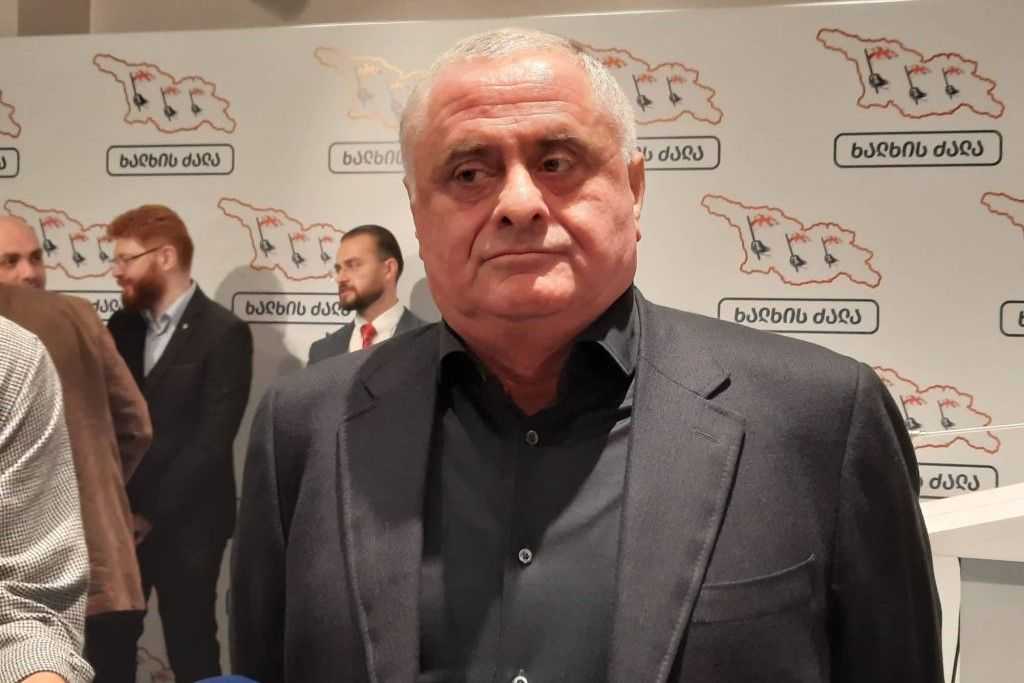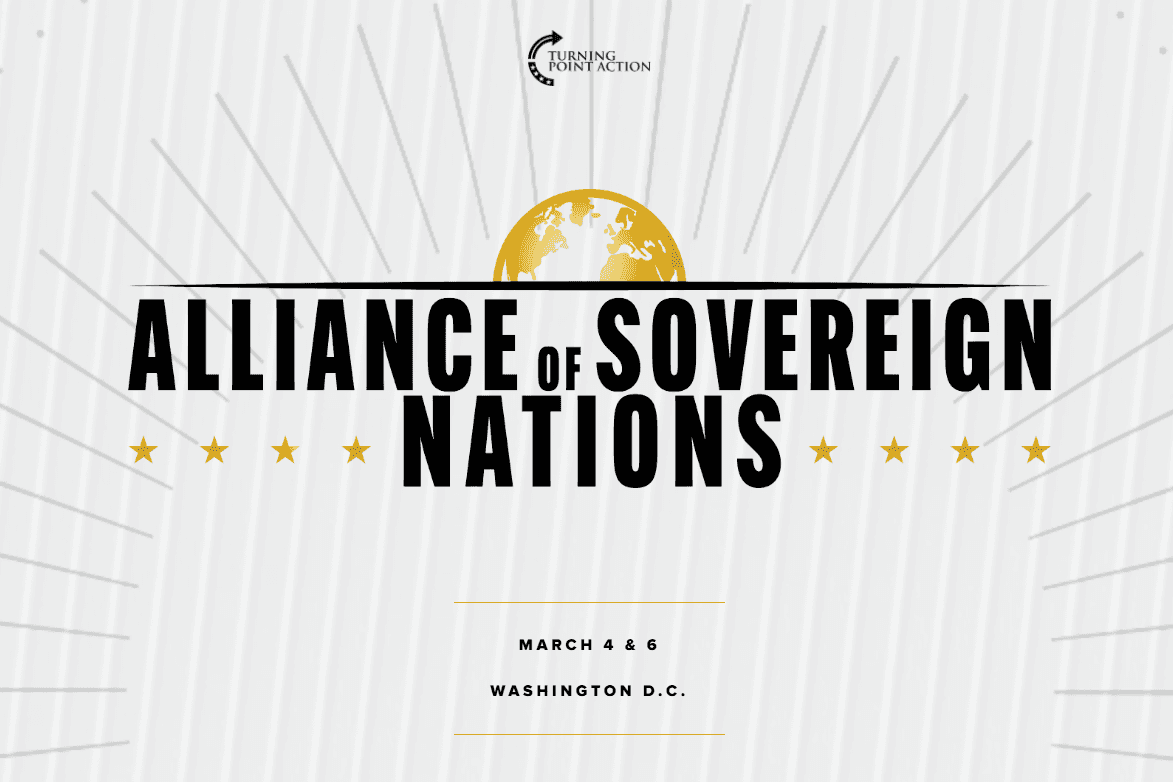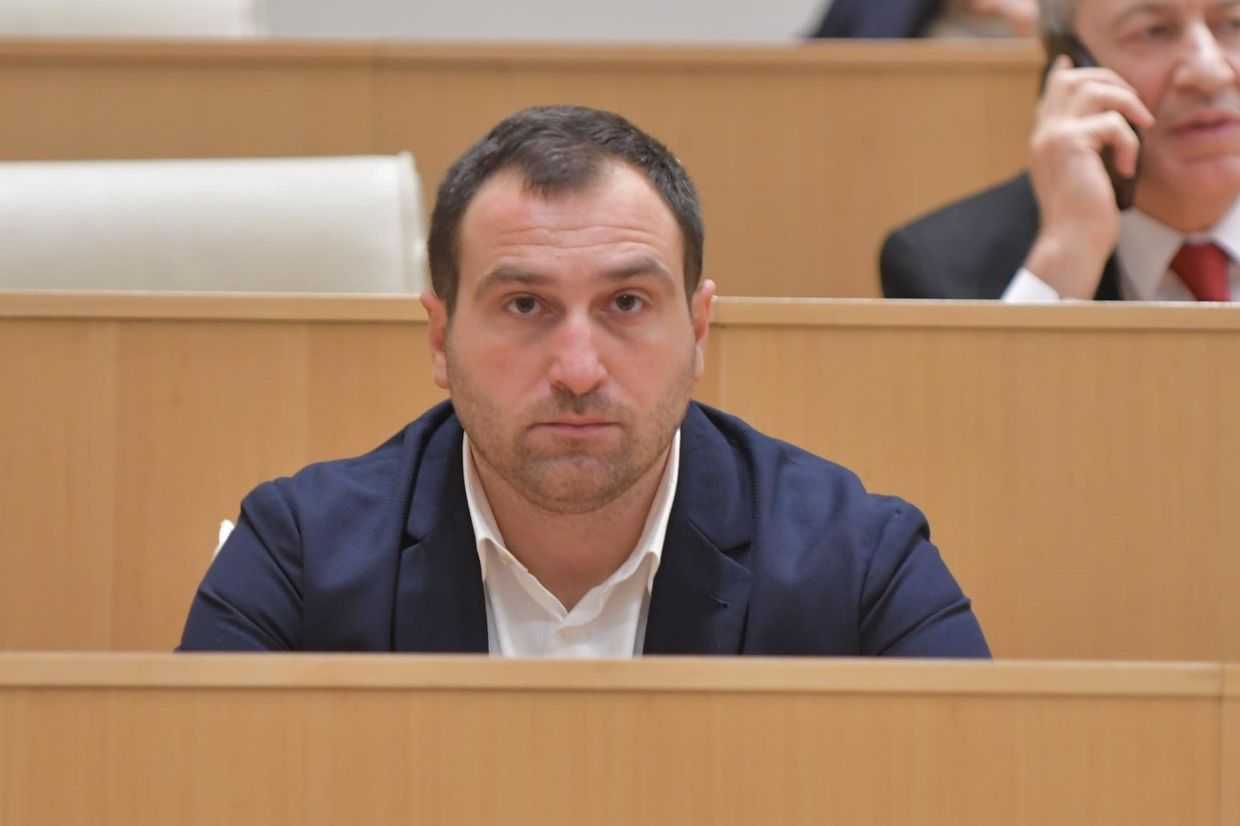
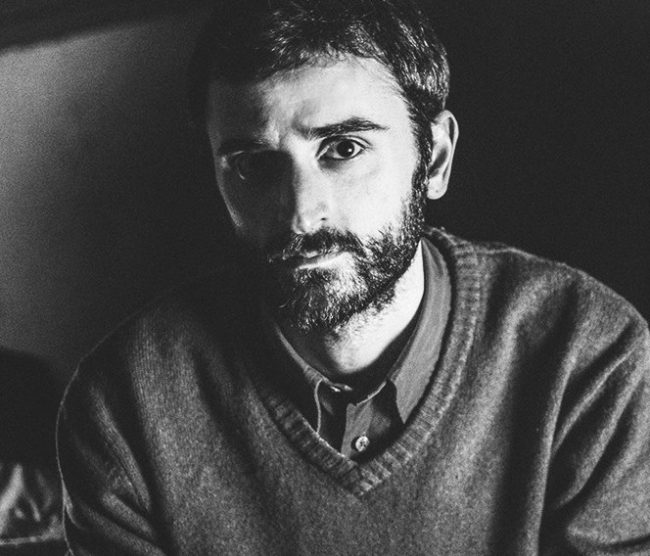
 On 17 May 2013, International Day Against Homophobia, a small group of around 50 queer rights activists were confronted in Tbilisi by thousands of counter-demonstrators led by Georgian Orthodox priests. Demonstrators carried posters with homophobic messages such as: ‘We don’t need Sodom and Gomorrah in Georgia’. The crowds, some carrying nettles to beat queer rights activists with, broke through police lines to attack the activists. Police were forced to evacuate the small number of activists from the city centre. Below is the story of Giorgi Kikonishvili, one of those present.
On 17 May 2013, International Day Against Homophobia, a small group of around 50 queer rights activists were confronted in Tbilisi by thousands of counter-demonstrators led by Georgian Orthodox priests. Demonstrators carried posters with homophobic messages such as: ‘We don’t need Sodom and Gomorrah in Georgia’. The crowds, some carrying nettles to beat queer rights activists with, broke through police lines to attack the activists. Police were forced to evacuate the small number of activists from the city centre. Below is the story of Giorgi Kikonishvili, one of those present.
On 16 May 2013, we already knew the gods had announced a large-scale mobilisation at the hands of Georgian Orthodox Church against the rebellion. A day before, hundreds of Christ’s soldiers reinforced the city’s main avenue armed with crosses and nettles. It was clear that the next day their number would reach the tens of thousands. It’s always easy to unite people to defend gods, not other people, and to profit from this.
On the same evening, we firmly decided to take to the streets on 17 May to mark the International Day Against Homophobia, Transphobia, and Biphobia, to remind the people who went through four wars in 20 years that hatred is a mistake, that it harms not only gays, but everyone. But as you all know, people always trust gods more than each other.
‘Salve — where the free society would gather’
Those of us who still believed in each other would gather in a bar close to Freedom Square. The name of the bar was Salve — a place, where teenage drunkards, smokers, the desperate, abandoned lovers, gays, bisexuals, heterosexuals (this was still a time when transgender people wouldn’t show themselves in public places), newcomer and veteran hipsters, pretentious and serious intellectuals, future politicians, the hopeful, talented and untalented musicians, photographers, poets and writers, in short — free society would gather. Salve was a melting pot. Where would I go in the evening of 16 May 2013? Of course to Salve, to get drunk. I had to see how our friends, the good guys, were getting ready for the next day.
To be honest, there were no special preparations. I wasn’t in any kind of special mood either. This was a day when none of us had yet witnessed what we were to see the next day, and we all still believed in something. No-one really questioned whether we should go out to the streets or not; we mostly discussed the possible threats. We imagined scenarios where our rally would be broken up. But then we would make fun of the nettles to chill out while drinking Salva’s tasteless chacha.
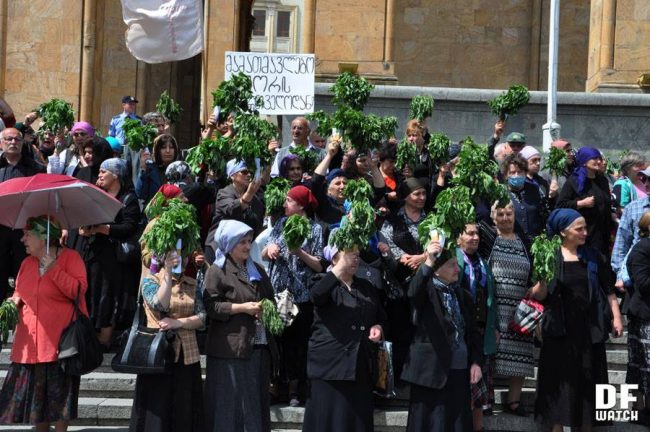
‘Kikon, I will not be able to come to the rally tomorrow’, my anarchist friend told me. We had discussed the necessity of establishing Antifa in Georgia the previous day and we even considered actually planning and setting up a group. This was a friend who would comment ‘ANTIFA!!!’ under each of my antifascist Facebook posts.
‘Why?’ — I never ask this question to those who tell me they won’t be able to come to the 17 May rally, not before 2013 and definitely not after 2013. The fear of the majority is so strong that it’s awkward to shame someone for being afraid, especially when you have experienced this fear yourself and when your legs shake at the rally. The only thing you can do in this moment is give security guarantees to them, but how can you give any guarantees when you have no guarantees yourself? That’s why I didn’t ask him this question. ‘I know you are afraid. I’m afraid too’, I thought. Another chacha shot.
‘But you know, mate, I am an anarchist; police will be protecting that rally and I as an anarchist will not stand at a rally protected by police’. I didn’t even ask, but he continued to explain. At that moment I would have prefered he was silent rather than saying this. I remembered the day before, my closest gay friend telling me that he couldn’t understand why we planned to go to this rally, and that he couldn’t understand the idea of the rally. I didn’t argue with him either. If a gay guy who grew up in Georgia, in this civilisation, cannot understand the idea of an anti-homophobia rally, then I don’t see a reason to argue with him.
‘I don’t want to be beaten and to hate this country even more’ — this is probably the most honest answer I’ve heard about coming to the rally or not. After all, I know a gay guy whose family saw him on TV during the rally held last year and his life was turned upside down. How can you force anyone to come to the rally then?
‘So, I’ll see you at the rally tomorrow’, another, old friend tells me mockingly. We spent a lot of time at his house when we were teenagers. We would listen to Jim Morrison, watch Zabriskie Point, and then endlessly discuss liberty. We would discuss his earring. He was one of the first men among our friends to pierce his ear. Then he went to Moscow to study. When he came back we would discuss the exalted beauty of Russian women; you can understand how interesting that could have been for me. An attentive eye could have easily seen how the rhetoric of this guy had changed. An attentive eye could have perfectly seen that sometimes everything is nauseatingly banal and that there is only a single step from loving beautiful Russian women to hating ‘European faggots’ and forbidding ‘faggotry’.
‘I know you’re a dick, but don’t tell me you’re going to the counter-rally tomorrow’, I asked him directly, and of course he confirmed. ‘Yes, I will be on the other side’, he answered laughingly. He was really laughing. He still cannot understand why I never say hi to him anymore and I’m still surprised that my friends stopped me from beating him up in that bar, something that would have been a first for me. That was the moment I understood that 16 May 2013 had the taste of desperation. When I got home I received a message on Facebook: ‘You’ll see what we’ll do to you tomorrow, you fags!!!’ The author of the message was an old classmate, a girl who went through a hell of oppression at school, until me and two other classmates fought with the others to protect her. This was a girl who never found out how the people who stood up for her against those who made her life at school hell became her closest friends. It was a girl who perfectly knew what oppression was. ‘Don’t stand by them, don’t go to the counter-rally. You will make a mistake and you will regret it, trust me’, I replied and went to sleep.
‘Today will be peaceful, right?’
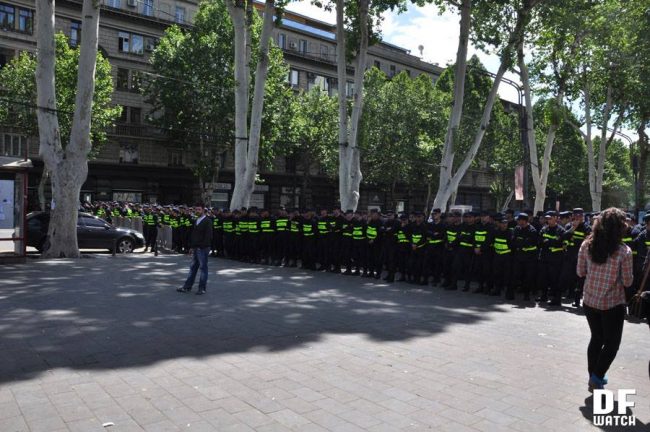
On 17 May 2013 I woke up in the morning as usual. I dressed, drank coffee, and left. ‘We’ll turn them into minced meat for khinkali’, I heard on the metro. ‘Of course, bro. What were they thinking deciding to come to the streets’, another said.
I lost my train of thought. I scanned the carriage and realised it was filled with men of my age, 20–25-year-olds, swearing, spitting. Then I realised the entire car was full of people going to the counter-rally. It turned out I had stepped into the crowd of violent people and sat in the middle of them. I became tense. While leaving the metro I knew for sure that things were getting serious. When I left the station I saw tens of thousands of people on Rustaveli Avenue. The air was heavy.
Pushkin Square was surrounded by police. The first police officer I met turned out to be an old friend. ‘Today will be peaceful, right?’ I asked him smiling, expecting to get the desired answer from him. ‘Of course, Gio, by the mercy of God, there will be peace’, he answered smiling. But I didn’t smile back because I didn’t think it was a good sign that even a police officer hoped for God. Or maybe it was an evil joke. There was no time for jokes. ‘Yes, I knew him once. He’s a journalist’, I heard how he told his colleague. Probably he was protecting himself from being accused of knowing a gay guy in the middle of 17 May. ‘I didn’t come here as a journalist, you dick, as if you didn’t know’, I thought and went to the square.
As soon as we entered the square, they introduced their security plan to us. They told us there was a yellow bus and if anything happened we would take that bus. What could happen? I couldn’t sense anything because I was so puzzled. That’s why I cannot describe in detail what was happening inside the square, where there were several people forgotten by almost everyone. None of us knew what could happen in the next few minutes and hours. I gave interviews to journalists, but I cannot remember a single word I said.
‘A rusty yellow bus, the symbol of our survival’
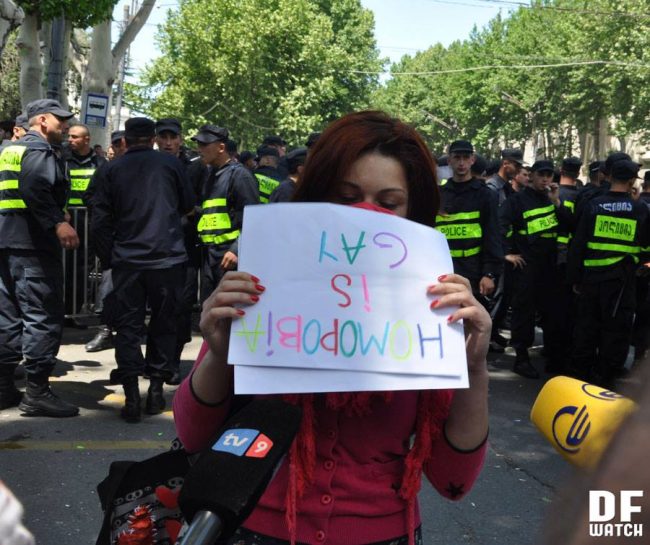
Soon there was uproar. Journalists headed towards the square. I thought some ambassador came. Someone yelled that they were about to disperse us. I thought they wouldn’t dare. Then I heard someone shout ‘run!’. ‘Oh, these hysterical gays make me nervous’, I thought and slowly moved to the square without panicking, to witness myself what was happening there.
I clearly remember this moment. I remember everything from then on. I remember how my being puzzled ended in that second when a stone flew by my face, taking away all my childish beliefs and views on the world and people.
I couldn’t believe it, are they throwing stones at us? Are they stoning us alive? I found myself rushing to the yellow evacuation buses. I looked back at the square and saw tens of thousands of people approaching like a tsunami aiming to destroy us. I couldn’t scream, I was just running and had one phrase in my mind: ‘We are too young for this to truly happen!’.
A rusty yellow bus, the symbol of our survival, started moving. It was still surrounded by people. They were kicking it, they were shouting insults at us. I remember a photographer who took pictures of us and then sapt on the window of the bus behind which was my face. I remember the sounds of stones hitting the bus’s windows and the sides. We rushed through Leselidze Street, which was kept open for the evacuation. The street was full of people coming out from the shops, cafés, and houses, waving fists at us and yelling, but I didn’t pay attention to what they were saying. It didn’t matter anymore.
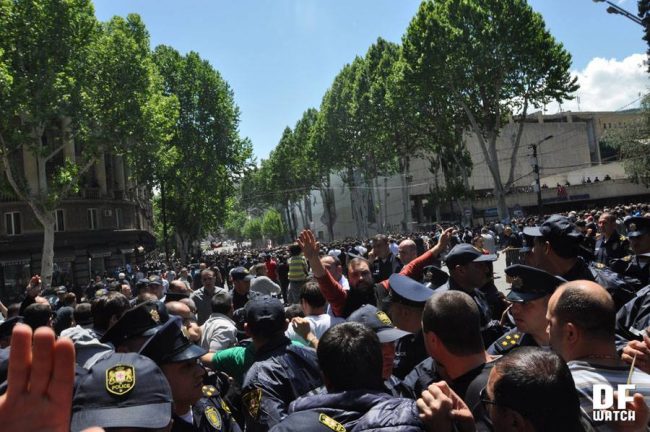
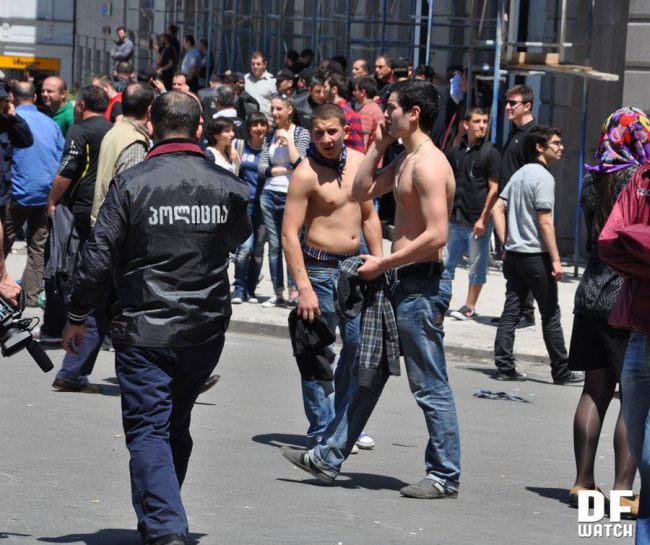
Only one guy caught our attention. He ran all the way from Freedom Square to Ortachala after the bus. What did he want? why did he make so much effort? no-one could understand. ‘Maybe he is gay too and we accidently left him outside? Let’s stop and take him aboard’, one of us joked. This joke wouldn’t even be funny normally, but it was crucial that we tried somehow to laugh sitting in a yellow bus on 17 May 2013.
The bus took us outside the city. We went to our friend’s house from there. From Facebook we learned the city was in uproar. News agencies, online press, the world’s major TV channels were reporting that in a post-Soviet country in Eastern Europe, in the capital of Georgia, tens of thousands of people with crosses and stones led by clergy broke a peaceful rally of several dozen LGBT activists. Several of them were injured, but there were no casualties.
‘Is Georgia not a Christian country?’ a surprised foreigner was asking in the comments. Some of the news channels used my photo as the cover, how I was looking out from the bus. ‘Oh man, what is this face? What’s wrong with me? Shut it down, don’t show me this photo’, I asked my friend. ‘What’s wrong with you, man, ok’, he tells me surprised.
The phone wouldn’t stop calling. I answered everyone briefly. ‘We survived, don’t worry’. Unexpectedly, my anarchist friend called me. I answered with no idea what he would tell me:
‘Kikon, how are you?’
‘I don’t know. We all survived. You must’ve seen the rest on TV.’
‘Yes, I saw everything and… I don’t know. What the fuck was it.’
‘Yes, I know.’
‘So, I don’t know how to tell you man, so you know… I’m sorry for the other day.’
‘Come on, fuck it. Forget it. We have to think about other things now. But you can see what we have to face now, all of us?’
‘Yes, of course I see now.’
I couldn’t wait till I got home, to crash on my bed, close my eyes, and sleep like a rock for a single night. I barely reached my bus stop, where I met the gay friend who didn’t understand the idea of our anti-homophobia rally. At home I heard phrases like ‘Why did you go?’, ‘What did you want?’, ‘What were you thinking?’. I was almost going crazy. I bought a beer. I barricaded myself in my room with two friends, and we drank till late.
Before I fell asleep, my mother came. ‘It was thoughtless of me when I asked you why you went. You know that we always stand by you’, she told me with a frightened face. ‘Yes, I know, but now I don’t want to think of anything, I want to sleep’, I answered her coldly, but deep inside I painfully thanked my family members, friends, and everyone who understood why we went there, everyone who believed in people, not in gods on this day. I went to sleep and dreamed of my father, who I last saw alive when I was five, before he was shot by a Russian bullet on 2 July 1993 during the war in Abkhazia.
‘Like a brother running after a brother to kill him’
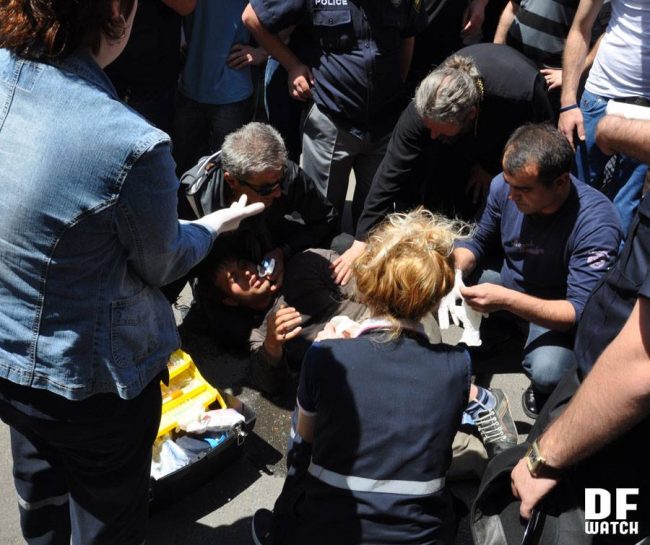
My friend called me in the morning and woke me up. He was a young, intelligent, leftist heterosexual guy. On 18 May 2013 he called me and asked me to help him emigrate. He wanted to go to Scandinavia.
‘You understand, man, how can I stay here after yesterday? I have an earring, long hair. They will be harsh on me. Do you know what the procedures for me to escape are? Do you think yesterday’s events will help me leave?’ I took a deep breath, trying to answer him calmly.
‘Yes, I can imagine how you feel now, but I have no idea what the procedures are. I never thought of leaving’, I answered and finished the conversation quickly.
I went to the kitchen to make coffee. Some TV channel was reporting how a heterosexual priest was demanding a ban on ‘homosexual propaganda’. The next report is about a press conference where a young man, who I knew, was also demanding the same. I remember his house in Sololaki where we used to listen to Jim Morrison together, watch Zabriskie Point, and endlessly talk about liberty.
I forgot about my classmate. I knew for sure that I would receive a long message from her. I had no doubts about it. This is a girl who went through the hell of oppression. It’s impossible that she would get home from the counter-rally without regretting standing with people throwing crosses and stones at us. If nothing else, at least she knew that the stones were thrown at her beloved childhood friend. I went to Facebook and I received a short message from her: ‘You see, as I told you, we destroyed you, fags!’
16, 17, 18 May are the days of human tragedies. It is a tragedy of citizens who went through four wars in the past 20 years, orphaned, hungered, beaten, tortured, whether young or old who have become an instrument in the hands of politically motivated clergy. These were the days of tragedies for forever parted old friends, people who were kicked from their family homes, people who were beaten, people misled by the gods. 16, 17, 18 May are the tragic days of people who stood on both sides of the barricade, because there is nothing worse to witness than a citizen chasing after a fellow citizen to kill them, like a brother running after a brother to kill him.
Five years have passed since those terrible three days in 2013. We have witnessed many tragedies before and after those events. We witness them every day, sometimes with casualties. We see women murdered by family members and tragedies of people sacrificed on the altar of the government’s indifference. We saw dispersals, throwing stones, insults, spitting. We saw the worst — how they murdered and then burned the body of transgender woman Sabi Beriani and how the next day, half the city celebrated this fact. It’s difficult to believe in anything in a city where they celebrate the death of an innocent person. It’s difficult, but maybe not impossible? How many tragedies must we witness to believe in people? — instead of war, hatred, and the gods of death.
This article is an edited version of an article written by Giorgi Kikonishvili. The original version first appeared in Georgian on the Equality Movement’s website.



